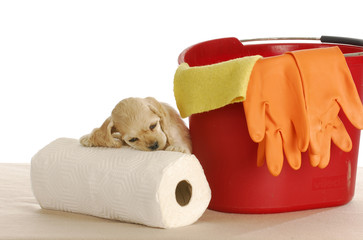There are lot of items that we use everyday and then get rid of them by throwing them in the garbage. Unfortunately, this results in pile of garbage as we throw old items, as well as packaging of new items. Reducing solid waste is reducing the amount of trash that goes to landfills. Reduce, Reuse and Recycle are most common methods to reduce landfill waste. Landfill waste poses a huge problem as it has economic and environmental impact and secondly, due to slow decomposition rate which takes thousands of years, several acres of land has already been virtually rendered useless that could have been actually used for setting up new residential colonies or industries.
While most of us may consider ourselves to be adept at conserving and recycling, the truth is that the average American makes far more trips to the landfills every year than you might think. While all of us probably believe that recycling and reusing things is a good thing, it’s a question of whether or not we actually carry it out.
Here are some useful steps you can take to ensure that you make fewer trips to the landfill each year:
1. Donate Clothes
Believe it or not, the throwing away of clothing is one of the biggest contributions we make to landfills today. We open up our closets; pick clothes that no longer need like a sweater that was fashionable last year, a ripped shirt, or some clothes that we just don’t want to keep any more. And where does it go? That’s right, to the garbage, and from there, to the landfill.
Instead of throwing away these old clothes, make better use out of it. First, make sure that these are clothes that you absolutely don’t need any more. Then, donate clothes to people in need or to Goodwill stores, or hold a sale in your garage (though assuming the clothes are still wearable, of course). You know what they say, another man’s trash is another man’s pleasure.
2. Reduce Food Waste
Food is another item that we often just carelessly toss away without thinking twice about it. Each year, a very large percentage of our purchased food is left uneaten. Instead of simply throwing away food, make good use out of it. Even if we kept just a small percentage of our uneaten food and donated it, millions of needy people would be fed.
3. Eat Healthy
Also think about eating healthier. Buy healthier foods that don’t require as much disposable waste in the form of packaging. Reuse old shopping bags and containers for maximum efficiency, and better yet, cloth bags. Don’t buy fast food take out as often either.
4. Save Leftovers for Next Day
Don’t forget about leftovers! Too many people are careless enough to throw away half of a good meal and not save it for later. Eating leftovers more often will save on money and result in less food waste. Try making it a habit to save the rest of tonight’s food in the fridge for tomorrow’s lunch or dinner.
5. Buy Things With Less Packaging
You can also stock up on food in the freezer. Buy a bunch of food at the same time and store it in the freezer, and don’t buy any more food until the freezer is empty. In addition, buying food in bulk means less packaging and less waste.
6. Boycott Plastic Water Bottles
Millions of plastic water bottles are thrown away by people every day. Don’t become one of those people. Not only will you save a boat load of money by switching to reusable glass bottles, you will be throwing a lot less empty (and un empty, for that matter) water bottles into the trash, which in turn means you won’t contribute to the mountains of bottles in landfills or (gulp) in the bottom of the ocean.
7. Just Don’t Buy as Much Stuff….Really
Though it’s often quite tempting to buy as much things as money can buy, if you are serious about cutting down on the number of trips you make to the landfill each year, simply buying less stuff will severely cut back on those number of trips all ready. Re-evaluate your priorities. Think about what you need vs. what you want. Also be mindful of what you throw away.
8. Recycle
Don’t just throw away old glass bottles or aluminium cans. Instead, recycle them. Keep a recycle bin in your home to place old soda cans, paper, metal and plastic cups. Most urban areas have a recycling station in town. Try making more trips to the recycling station than to the landfill.
9. Purchase Items Made From Recycled Products
Consider buying items made from recycled products so that you can help the environment in making it clean and green. Most of the advertisers advertise this fact so that you know that you are actually providing a helping hand to reduce landfills. Also, this will set as an example for your friends, family and relatives and they will also start buying items made from recycled products.
10. Clean Smarter
Instead of buying cleaning solutions from market to unclog your drains, use baking soda and vinegar for your cleaning projects. Baking soda has countless uses and neither vinegar nor baking soda will hurt the environment. This way you can avoid all the bottles of cleaners and cans you use.
11. Composting
Composting is easy and natural process that takes remains of plants and kitchen waste and turns it into nutrient rich food which help your plants grow. Compost is organic materials that has been collected together and decomposed. Composting helps you recycle your kitchen waste and reduces the amount of that is sent to landfills that proves safe for the environment.
12. Reuse
Take an old shopping bag with you while going out for shopping. An old shopping bag can replace hundreds of plastic bags that will end up in landfills. Use empty wine or beer bottles into lamps, oil and vinegar dispensers or send them to recycling centers as few of them may be recycled.
13. Buy rechargeable batteries
Rechargeable batteries will save you money in the long run and keep disposable batteries out of landfills. Disposable batteries can prove very harmful for the environment as chemicals inside the batteries can leak.
14. Buy Items Packaged in Recycled Cartons
Buy products that are packaged in recycled cartons and reuse those cartons. Similarly, old newspapers make great packaging material. This helps to promote recycling.
15. Get Involved
…get involved. Visit pro-recycling sites and talk to others in your community about the benefits of reducing solid waste. Family, friends, neighbors, anyone. If you start to make a difference, maybe others will follow in your footsteps.
source


 he easiest way to curb your dog is to collect the poo in a bag and throw it away. There are two main points to take care while bagging your dog’s poop: the right sized bag and the right technique. Make sure you don’t carry a tiny sandwich sized bag, because although it’s enough to contain the poop, there are chances that you’ll get your hands dirty. Once you’ve got a large enough bag, wear it like a glove. Pick up the poop with it, and use your other hand to pull over the bag on it. The bag shouldn’t have a hole, otherwise the poop can drop out. Knot the bag and throw it in a trash can.
he easiest way to curb your dog is to collect the poo in a bag and throw it away. There are two main points to take care while bagging your dog’s poop: the right sized bag and the right technique. Make sure you don’t carry a tiny sandwich sized bag, because although it’s enough to contain the poop, there are chances that you’ll get your hands dirty. Once you’ve got a large enough bag, wear it like a glove. Pick up the poop with it, and use your other hand to pull over the bag on it. The bag shouldn’t have a hole, otherwise the poop can drop out. Knot the bag and throw it in a trash can.